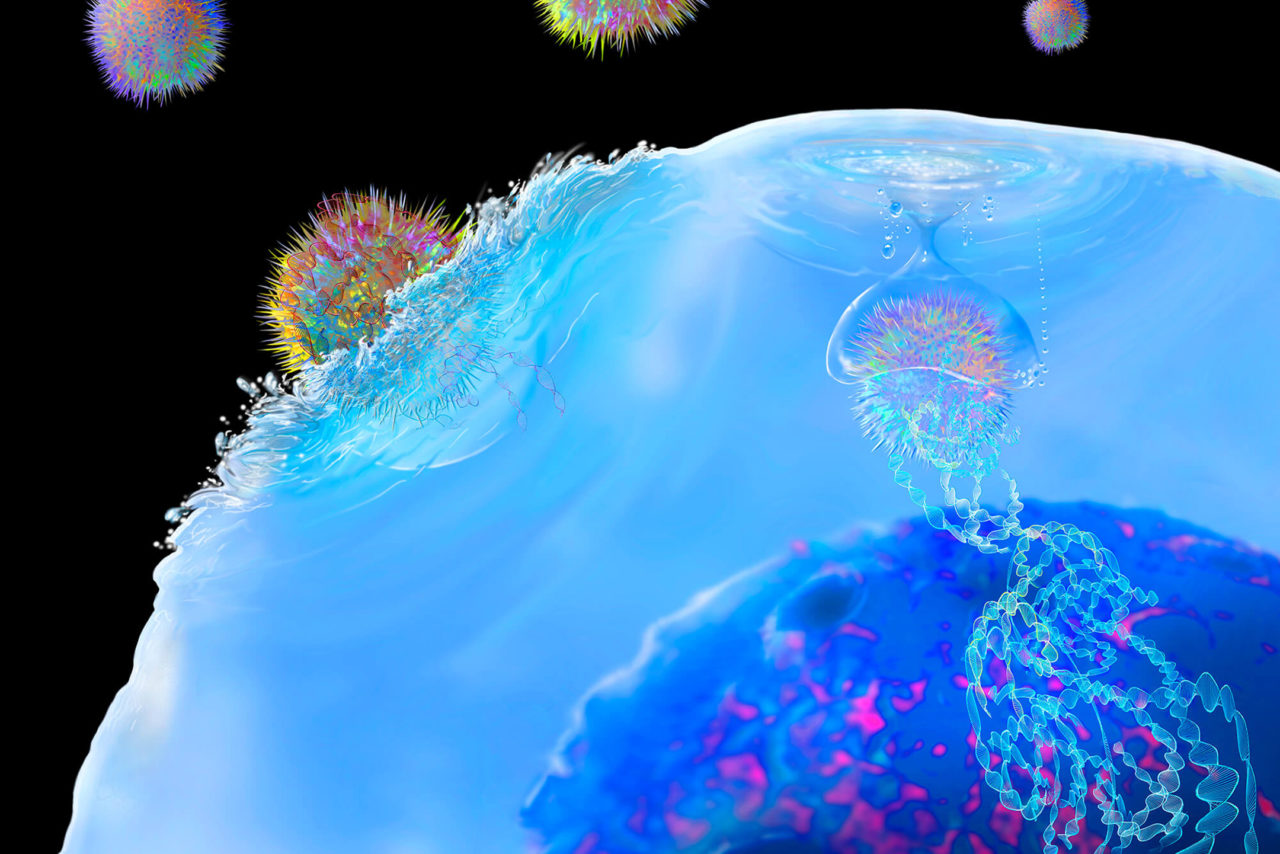A one-year follow-up study led by The University of Texas MD Anderson Cancer Center revealed a majority of patients with mantle cell lymphoma resistant to prior therapies may benefit from treatment with CD19-targeting chimeric antigen receptor (CAR) T-cell therapy.
The multi-center, 20-site, Phase II ZUMA-2 study reported that 93% of patients responded to the CAR T-cell therapy KTE-X19, with 67% achieving a complete response. At a median one year-follow up, 57% of patients were in complete remission, and the estimated progression-free survival and overall survival were 61% and 83%, respectively. At the time of this analysis, 76% of all treated patients in the study were alive.
In CAR T-cell therapy, patients’ T cells are extracted through a process called leukapheresis and genetically reengineered with CAR molecules that help T cells attack cancer cells. The reengineered T cells are infused back into the patient. In this study, a type of CAR T-cell therapy known as KTE-X19 was manufactured and administered to patients.
“ZUMA-2 is the first multi-center, Phase II study of CAR T-cell therapy for relapsed/refractory mantle cell lymphoma, and these efficacy and safety results are encouraging,” said Michael Wang, M.D.. professor of Lymphoma & Myeloma. “Although this study continues, our reported results, including a manageable safety profile, point to this therapy as an effective and viable option for patients with relapsed or refractory mantle cell lymphoma.”
All patients had relapsed or refractory disease after receiving up to five therapies, and all patients had received Bruton’s tyrosine kinase (BTK) inhibitor therapy. BTK inhibitor therapy has greatly improved outcomes in patients with relapsed or refractory mantle cell lymphoma, yet patients who have disease progression after receiving the treatment are likely to have poor outcomes, with median overall survival of just six to 10 months. Few patients in this category qualify to proceed to an allogeneic stem cell transplant.
In this study, the patients’ median age was 65 years, and 84% were male. More than 80% of the patients had stage IV disease, and more than half were diagnosed as intermediate to high-risk in a mantle cell lymphoma prognostic index.
The study reported grade three or greater side effects, with the most common being neutropenia and thrombocytopenia. The majority of patients experienced cytokine release syndrome, a common side effect of CAR T-cell therapy, but the syndrome was effectively managed in all patients.


